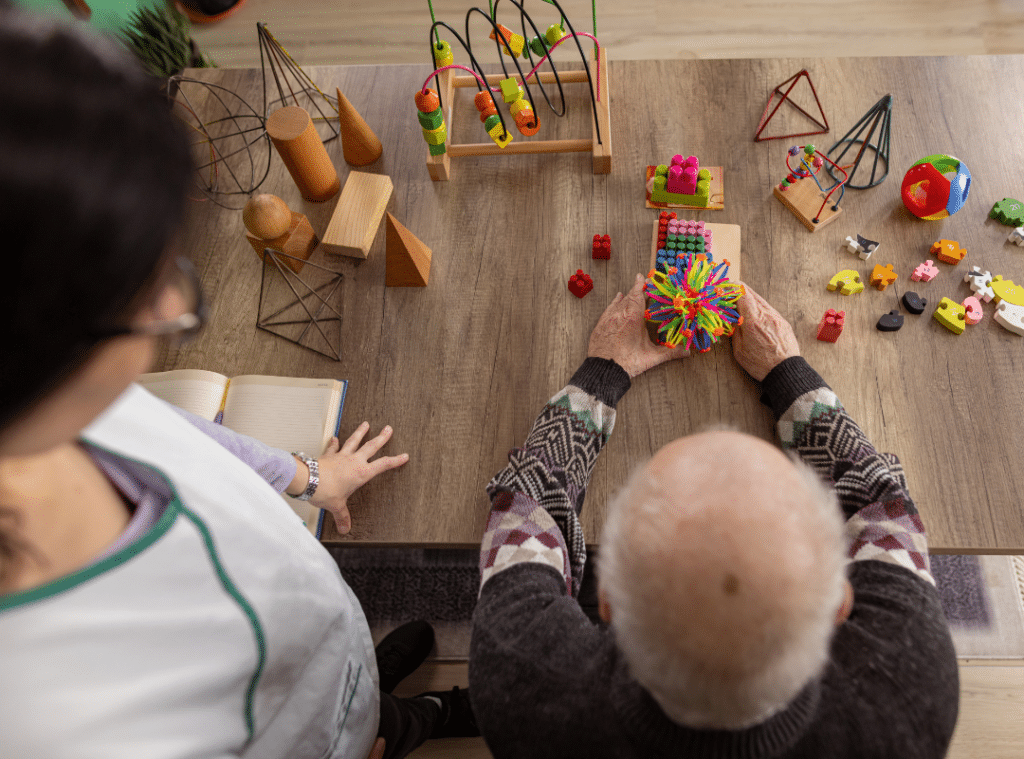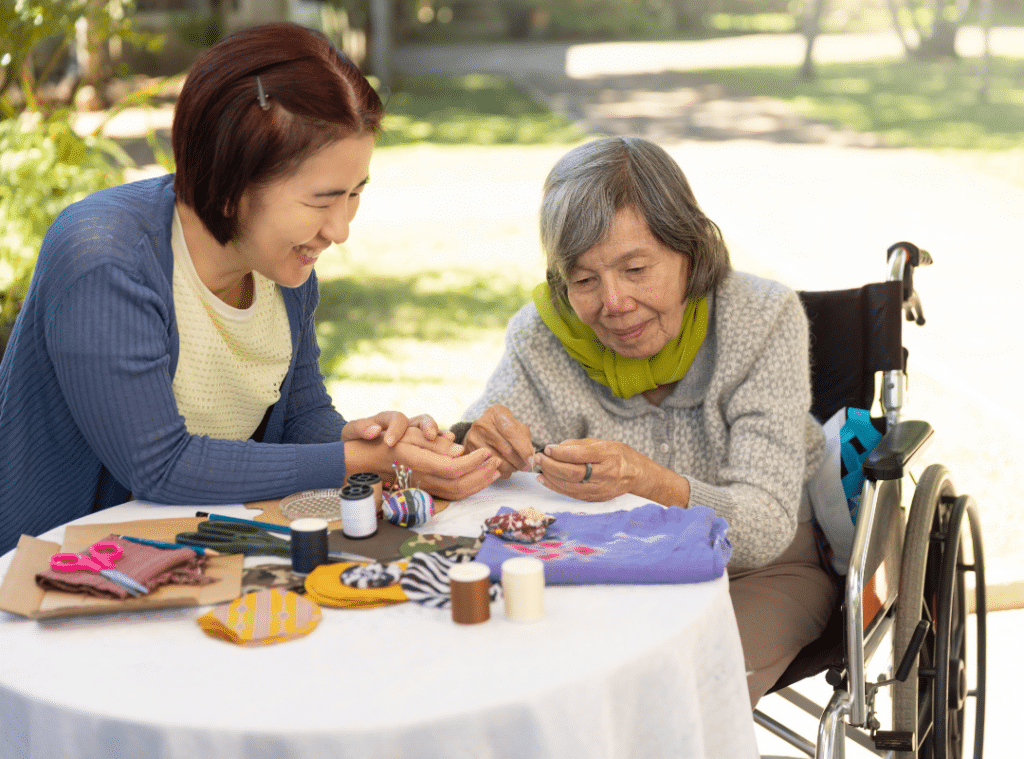Crafts for Dementia Patients: Simple Ideas for Cognitive Health
When you think about supporting a loved one with dementia, crafts might not be the first thing that comes to mind, but they can play an essential role in cognitive health. At Westmont of Morgan Hill, we believe that engaging in simple projects allows you to foster connections while enhancing fine motor skills and memory recall. You might be surprised by the variety of activities that not only offer a sense of accomplishment but also encourage social interaction. Curious about some easy craft ideas that could make a meaningful difference? Let’s explore those together.
Crafts for dementia patients
Crafting can be a meaningful and therapeutic activity for dementia patients, offering them a chance to express themselves and engage their minds. When you introduce crafts, you’re not just providing an activity; you’re creating an opportunity for emotional connection and cognitive stimulation.
Research shows that engaging in arts and crafts can slow cognitive decline and elevate mood. Consider selecting activities tailored to the individual’s abilities. Simple projects like stringing beads or painting can evoke a sense of accomplishment and joy. These crafts allow for creative expression while also encouraging fine motor skills.
Incorporating familiar materials or themes can enhance engagement, making patients feel more connected to their past. It’s important to foster a supportive environment where they can share their creations and experiences with others, promoting social interaction. Additionally, engaging in these activities can enhance cognitive functions and contribute to the overall well-being of dementia patients.
Simple crafts for dementia patients
Engaging in simple crafts can provide dementia patients with a sense of purpose and enjoyment. These activities not only promote creativity but also enhance cognitive function and emotional well-being.
For instance, creating a painted-bead necklace allows patients to express themselves while improving fine motor skills. All they need are a few wooden beads and some paint, making it easy and accessible.
Another great option is making paper flowers. Using pre-cut shapes can simplify the process and encourage a sense of accomplishment. These flowers can brighten up a room or serve as thoughtful gifts.
You might also consider decorating clay pots. Patients can personalize their pots with paint, fostering creativity and providing an opportunity to care for plants. This is a lovely way to combine artistry with nurturing.
Lastly, assembling a scrapbook can engage their memory and stimulate conversations about cherished moments. It’s a wonderful way to reminisce and create a lasting legacy. Engaging in crafts is an effective way to enhance cognitive health and provide emotional support for dementia patients.

Creative activities for dementia patients
Creative activities play an essential role in enhancing the quality of life for dementia patients. Engaging in crafts can stimulate cognitive function, improve emotional well-being, and foster social connections. Simple activities, like making painted-bead necklaces or decorating bookmarks, can evoke feelings of accomplishment and joy. These projects often require minimal supervision and can be adapted to suit various stages of dementia, ensuring everyone can participate.
Consider incorporating collaborative crafts, such as scrapbooking or baking decorated sugar cookies. These activities not only spark creativity but also encourage reminiscing and storytelling, which can strengthen bonds between you and the patient. Additionally, crafting paper flowers or personalized mugs provides a sense of ownership and pride in their creations.
Don’t forget about nature-inspired activities like painting or creating birdhouses, which can enhance mood and promote a connection to the outdoors. Engaging in these creative pursuits can be particularly beneficial, as they align with the principles of personalized care plans that focus on maintaining each individual’s quality of life.
Engaging in crafts with dementia patients at Westmont of Morgan Hill can be like planting seeds in a garden. Each simple project, whether it’s a painted-bead necklace or a decorated clay pot, nurtures their cognitive health and emotional well-being. Just like flowers blooming from tender care, these activities spark joy and connection, reminding us of cherished memories. By fostering creativity, you’re not just creating art; you’re cultivating moments of happiness that enrich their lives and strengthen their bond. For more information, please call us at 408-779-8490.
Dive into the vibrant life our Westmont communities have to offer.Find Where You Belong
Questions on Dementia Caregivers
- What are the crafting ideas for people with dementia?
Crafting activities such as painting, coloring, scrapbooking, and making simple jewelry can be enjoyable and therapeutic for people with dementia. These crafts provide a sense of accomplishment and can help improve fine motor skills and reduce stress. Always choose projects that are safe, easy to complete, and can be done with minimal assistance. - What type of art is best for dementia patients?
Art activities that are simple and sensory-focused, like watercolors, finger painting, or collage-making, are excellent for dementia patients. These activities encourage creativity, reduce anxiety, and promote self-expression without requiring perfection or precision. Avoid projects that could be frustrating or involve sharp tools. - What is a hobby for a person with dementia?
Gardening, listening to or playing music, folding laundry, or working on puzzles are great hobbies for people with dementia. These activities provide mental stimulation and a sense of purpose while being adaptable to their cognitive abilities. Tailor the hobby to the individual’s interests and ensure it is manageable. - What are three things to never do with your loved one with dementia?
Never argue or try to correct them when they are confused; instead, redirect or reassure them. Avoid giving them complex instructions or too many choices, as this can lead to frustration. Lastly, do not isolate them—maintain regular social interactions and engage them in activities to promote emotional well-being.








